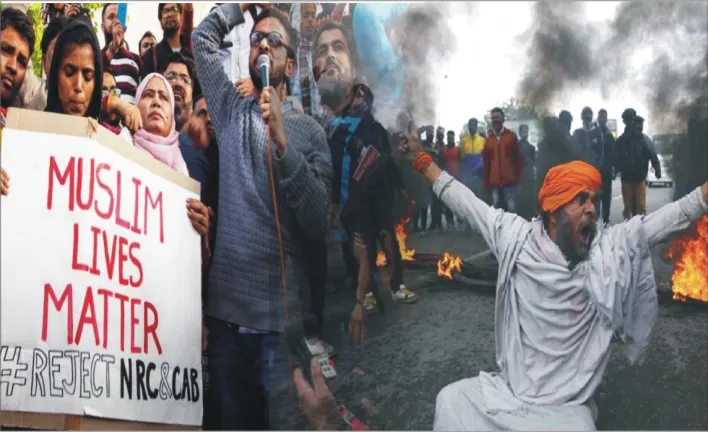The oppression of Muslims in India — fueled by Hindu nationalism — has become so common that observers say it’s raising doubts about its future as a secular state — and the world’s largest democracy, reported Hindutva Watch, a Washington-based project that monitors hate speech and hate crimes against India’s religious minorities, including Muslims.
According to Kashmir Media Service, since Narendra Modi, leader of the ruling Bharatiya Janata Party, became the prime minister of India in 2014, hate speech and hate crimes against India’s religious minorities — particularly Muslims — have increased at an alarming rate. In September, Hindutva Watch reported that in the first six months of this year “nearly 80% of the hate speech events were held in Bharatiya Janata Party-ruled states or territories controlled by the BJP-led central government. This statistic is particularly striking, considering that only 45 % of India’s population falls under BJP rule.
From its launch in 2021, Hindutva Watch has been a thorn in the sight of Hindu nationalists who have been provoking anti-Muslim sentiment for years.
Founder Raqib Naik and his 13-member team — all self exiles based in Europe and America — have archived more than 1,200 videos on the HW website, notching up millions of views.
“I wanted to create a single space where all the hate crimes against minorities are cataloged and archived,” Naik, 28, said. “Anyone interested in the rise of Hindu nationalism in India should be able to find it under one roof.”
Naik was born in occupied Jammu and Kashmir. News reports accuse India of grievous human rights abuses in the area.
Early in his career, Naik was based in Kashmir, reporting on atrocities against civilians at the hands of Indian security forces. He was on a trip to Washington, D.C., in August 2020 when he tweeted about a civilian who was killed in the custody of Indian forces in Kashmir. That’s when those forces started harassing his family, and he decided to remain in the U.S.
“Being a Kashmiri, Muslim and a journalist is a deadly combination in India,” Naik said. “It forced me to take this journey.”
Naik started by monitoring the social media ac-counts of far-right leaders in India, who travel across the country, deliver hate speeches and even upload them on their social media platforms. “The social media activity of far-right leaders is meant to communicate with their base,” Naik said.
“It is a message that the work of making India into a Hindu supremacist nation is ongoing undeterred.”
He says Indians can’t find those stories in main-stream media because it has stopped much of its reporting on hate speech and hate crimes.
A year ago, Anil Yadav, a reporter based in India’s northern state of Uttar Pradesh left his job at a Hindi television channel and made a video explaining his decision. “I feel ashamed calling myself a journalist,” he said, explaining he had instructions from the top to criticize only the opposition party leaders — not Modi’s party.










